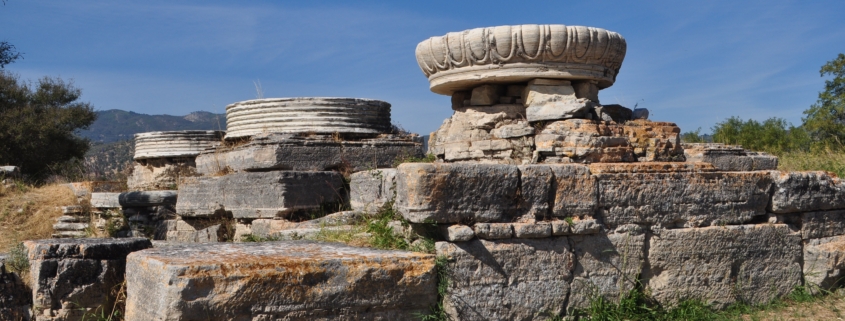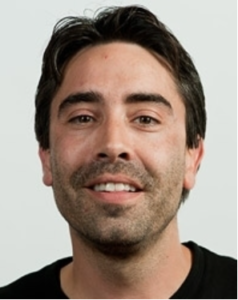ARCHON DAY 2022 – 28 October
Archon Day 2022
Date: 28 October 2022
Location: Kinderdijkzaal, Rijksdienst voor het Cultureel Erfgoed, Smallepad 5, Amesfoort.
Credits: 1 or 2 EC
Every year Archon organizes the ARCHON Day. During this day, we want to bring students, researchers, and professional archaeologists from the commercial sector together to talk about current topics in archaeology. This year the Archon Day will take place on 28 October 2022 and the central topic will be: ‘Interdisciplinary Collaborations’.
Archaeology has a long tradition of collaboration with disciplines like earth sciences, ecology and ancient history. However, the current academic trend is to increasingly look for wider interdisciplinary collaboration, which includes disciplines that are not necessarily obvious choices for archaeologists, such as computer science, medicine, sociology or economics. But what does it take to work in an interdisciplinary way? Does this not go at the expense of developing specialist knowledge? To what extent are archaeologists still ‘in charge’ of the results of interdisciplinary collaboration, and should they? What is the contribution of archaeology to the fields that they collaborate with? And how can we create a true synergy from these collaborations?
During ARCHON Day we want to focus on these questions in three domains: fieldwork, ‘science-based’ research and, at the other end of the research process, the stories that archaeologists tell about the human past.
Preliminary Program:
10:30 – 11:00 Welcome with coffee & tea and posters
11:00 – 11:15 Welcome by Philip Verhagen
11:15 – 12:15 Keynote lecture by Jason Laffoon
12:15 – 13:30 Posters, lunch break* & voting for posters
13:30 – 13:40 Poster prize announcement
13:40 – 14:10 Workshop round 1
14:20 – 14:50 Workshop round 2
15:00 – 15:30 Workshop round 3
15:30 – 16:00 Coffee & tea break
16:00 – 17:00 Panel discussion and closing of the day
17:00 Drinks at The Three Rings Brewery
* a vegetarian lunch will be provided
Keynote lecture:
Interdisciplinary Collaborations: Looking Back and Looking Forward
This lecture comprises a critical reflection on Interdisciplinary Collaborations. By looking back on the evolution of academic disciplines over time and their variability in the present day, I argue that some although not all, of the distinctions between these socially constructed categories are arbitrary and fuzzy. Although often framed as a recent development, interdisciplinarity actually has a rather long history, and to some extent archaeology has in fact always been highly interdisciplinary. Furthermore, there is a purported tension between promoting interdisciplinarity on the one hand and the tendency toward ever greater specialization on the other. Although there is perhaps some truth to this notion, it also neglects both the tendency for new methods and insights to arise specifically through interdisciplinary collaborations between specialists, but also the fact that specialists are increasingly interdisciplinary in their own right. Nonetheless, there are numerous differences that have arisen between academic disciplines especially in terms of education, theory, approach, language and even ‘cultural’ differences that can hinder research collaboration. Both the potentials and challenges of interdisciplinary collaborations will be highlighted via several examples from the speaker’s own research experience. The lecture will conclude by looking forward and exploring some ideas about the potential future directions of Interdisciplinary Collaborations.
Jason Laffoon is an Associate Professor and Head of the Department of Archaeological Sciences, Faculty of Archaeology, Leiden University. Jason obtained his BA (2004) and MA (2006) in Anthropology from the University of Illinois at Chicago, and his PhD in Archaeology (2012) from Leiden University. His main research interests concern assessing variability in patterns of migration, mobility, diet, and exchange over space and time. His research approach focuses on integrating archaeological, bioarchaeological and biochemical approaches to the study of the human past.
Rotating workshops:
Three workshops will be organized which will be repeated three times, so attendees will be able to follow all of them.
1. Interdisciplinary fieldwork
Moderator: Bleda Düring, UL
Fieldwork is traditionally the research activity that archaeologists consider as their core domain. Methodologies have developed over a long period of time, and are slow to change. Yet, with increasing possibilities for non-destructive research and highly detailed automated recording, fieldwork is gradually losing its primacy as the core activity of archaeologists, and needs closer collaboration with computer scientists and earth scientists. What will be the consequences of this development for the traditional field campaign?
At a different level, while archaeologists have always been aware that doing fieldwork inevitably involves dealing with local communities, a true involvement of these communities needs an approach of direct and equal collaboration – what is needed for this?
2. Science-based archaeology
Moderator: Hans Huisman, RUG/RCE
One of the strongest drivers of archaeological research over the past 15 years has been the fast development of science-based methods such as isotope analysis, aDNA and archaeometry. These methods are more often than not developed and implemented by non-archaeologists. While it might thus seem that ‘science’ is the handmaiden of archaeology, archaeologists will have to know what these methods can do in order to apply them effectively, and scientists probably have little knowledge about archaeological research methods and questions. What is needed to make this a more balanced collaboration?
3. Story-telling
Moderator: Gertjan Plets, UU
The consumers of archaeological research results (politicians, general public) probably don’t care very much about who provides information on the human past. They will expect that contributions from different disciplines will be combined into a coherent narrative of human and environmental history. How can archaeology make this turn towards presenting a more ‘holistic’ view of the human past?
Panel discussion:
- Gert Jan van Wijngaarden, UvA (moderator)
- Martina Revello Lami, UL
- Arjan Ruiter, VU
- Lasse van den Dikkenberg, UL
Poster session:
Also this year we invite students to present their research through a poster presentation! During the ARCHON Day the audience will vote for the best poster presentation. The prize will be a personal research subsidy for publication costs/open access costs/translation costs up to max. 400 euro’s.
Poster guidelines:
- The maximum poster size is A0 format, which corresponds to 84 cm (width) x 118.8 cm (length). Your poster can have a smaller size, but keep an eye on the maximum length and width.
- Use the portrait format.
- Be creative! 🙂
Congress review assignment:
This year we ask students to write a ‘congress review’ about the ARCHON Day 2022 for KLEOS, Amsterdam Bulletin of Ancient Studies and Archaeology. A congress review is ca. 750 – 1500 words and is not peer-reviewed. The review should assess the congress’s strengths and weaknesses and locate it within the current field of scholarship. The review should not simply be a listing of contents, but discuss and evaluate it critically, though the review’s overall organization and emphasis are up to the individual reviewer.
Submit your congress review on 28 November latest, to bulletin.kleos@gmail.com and secretary@archonline.nl. Please also state if you want your review to be considered for publication or not. KLEOS will decide on the best review, which will be published in KLEOS issue 6 (expected in September 2023).
For examples of congress reviews that were published in KLEOS, please see the following links:
Credits:
1 EC for attending and handing in a review
1 EC for giving a poster presentation
2 EC for attending, handing in a review and giving a poster presentation
Registration: Closed! For questions email to: secretary@archonline.nl



